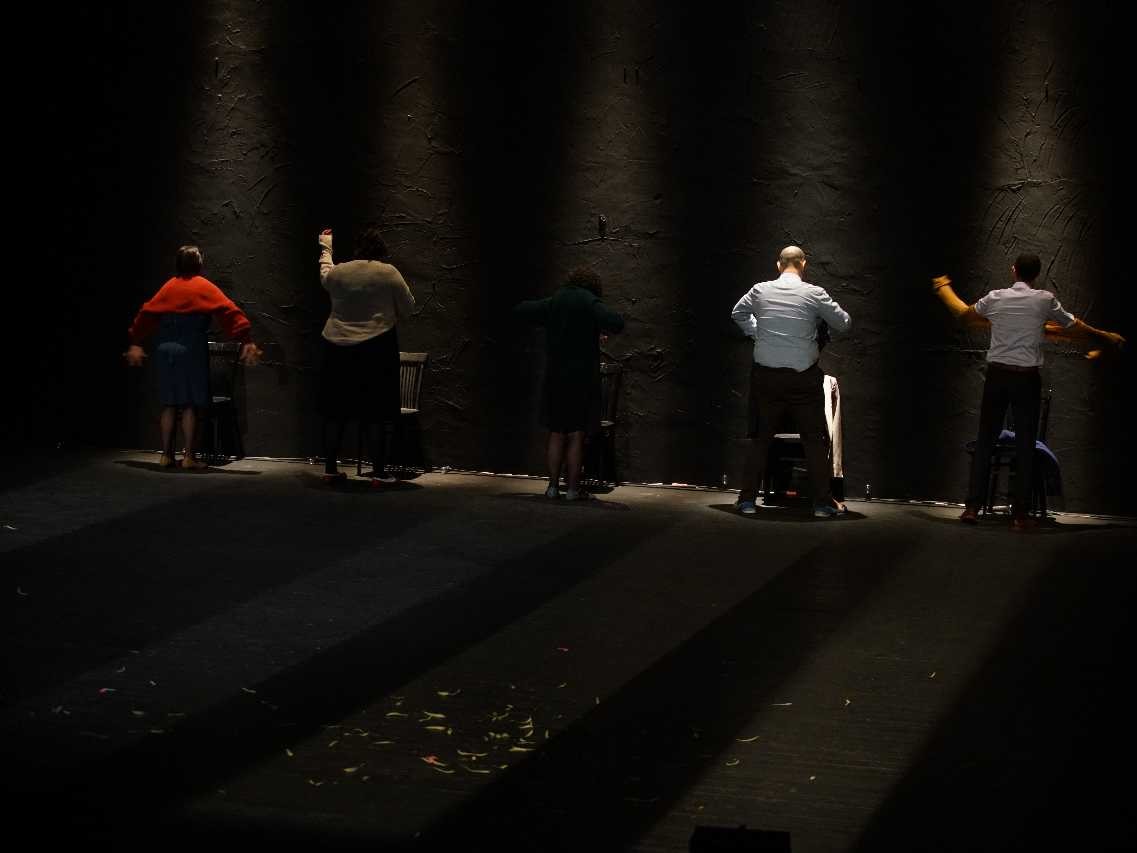
How did diaspora become an identity?
In Other Places, Bashar Murkus and an ensemble of theatre artists transform the stage into a laboratory in order to dissect the anatomy of identity. They manipulate the separate components, observe them from afar, scrutinize them from different perspectives, in order to deconstruct them and reconstruct them anew in front of the audience. The show offers a rich performance experience that considers memory as tangible material, the human being as an object in a museum, and place as an elusive concept.
The work began as a performance research project under the title “Identity in a Lab.” The participants are twenty Palestinian theatre artists living in different parts of the world.
by Bashar Murkus and the project team
Directed by: Bashar Murkus
With: Raeda Ghazaleh, Shaden Kanboura, Khuloos Basel Tannous, Husam Al-Azza, Henry Andrawes
Scenography: Majdala Khoury
Dramaturgy: Ala Hlehel
Light designer: Firas Tarabshi
Producers:
Khashabi Theatre
and The Palestinian National Theatre – El-Hakawati
Belgian tour presented by Moussem and partners
How did diaspora become an identity?
In Other Places, Bashar Murkus and an ensemble of theatre artists transform the stage into a laboratory in order to dissect the anatomy of identity. They manipulate the separate components, observe them from afar, scrutinize them from different perspectives, in order to deconstruct them and reconstruct them anew in front of the audience. The show offers a rich performance experience that considers memory as tangible material, the human being as an object in a museum, and place as an elusive concept.
The work began as a performance research project under the title “Identity in a Lab.” The participants are twenty Palestinian theatre artists living in different parts of the world.